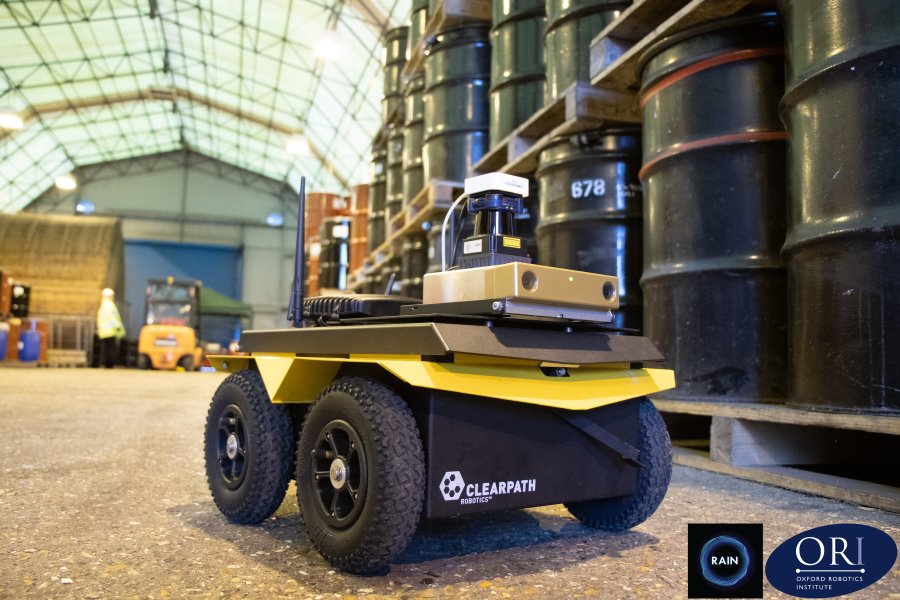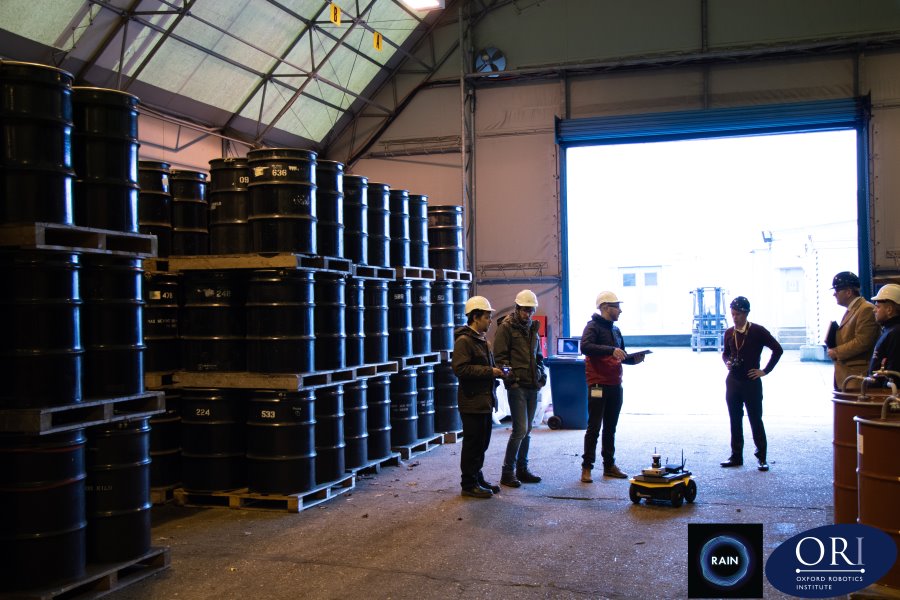The RAIN Hub is built on an ethos of forging new connections. These new connections link people, technologies and places to solve real-life challenges. One particular challenge area for RAIN is that of Remote Inspection; the ability to remotely deploy sensors to specific target areas in order to retrieve useful, accurate and timely data.

The latest chapter in the story of Remote Inspection in RAIN involves a trial which linked together;
- Oxford Robotics Institute (ORI),
- Their autonomous ground-based-robot equipped with mapping and scanning technology and
- The UKAEA site at Culham.
The broad remit of the RAIN Remote Inspection challenge is the use of robotics and AI to support operators performing characterisation and monitoring of nuclear industry environments. This particular trial is more specific, in that it involves how to improve the frequency, accuracy and reliability of monitoring in a drum store. The findings from this trial can then be used to inform more generic remote inspections tasks.
This type of activity is important because, although waste drums should be stable and their features shouldn’t change, there is a possibility that they may. Current methods involve local visual inspections carried out by people at regular intervals. If there has been a containment breach of some kind then there is a risk that the person inspecting the area may be exposed to leaked material. By using a robot platform to inspect the drums it means that more accurate monitoring data can be gathered, without the risk of a person being exposed to any hazardous material.
In this trial at Culham, ORI scanned the drum store in two ways. The first used a survey-grade scanner to produce an accurate 3D model of the site. This can be used both for robots to find their way around the site, and for the RAIN and UKAEA teams to plan the deployments of robots in the future. The second scan was performed by teleoperating a Clearpath Jackal robot around the site to construct a 2D map and demonstrate basic navigational autonomy within the drum store. Both scans can be used to perform change detection on the position and shape of the waste drums.

While the test area used in this case is defined as safe for people to enter with basic Personal Protective Equipment (hard hats and hi vis jackets), there are much more hazardous waste stores where human access is either very difficult (involving multiple measures of PPE) or impossible. Trials such as this one provides a test not only for the technology but also the procedures for getting the tech onto a nuclear licensed site.
Further trials will be held at Culham to test automated inspection routines to control a ground robot in the stores, and to integrate operator control and feedback into the system.
If you have a nuclear environment in which you would like to trial remote inspection kit, or would like to know more, then get in touch. We will be very keen to talk with you!
Get in touch at info@rainhub.org.uk